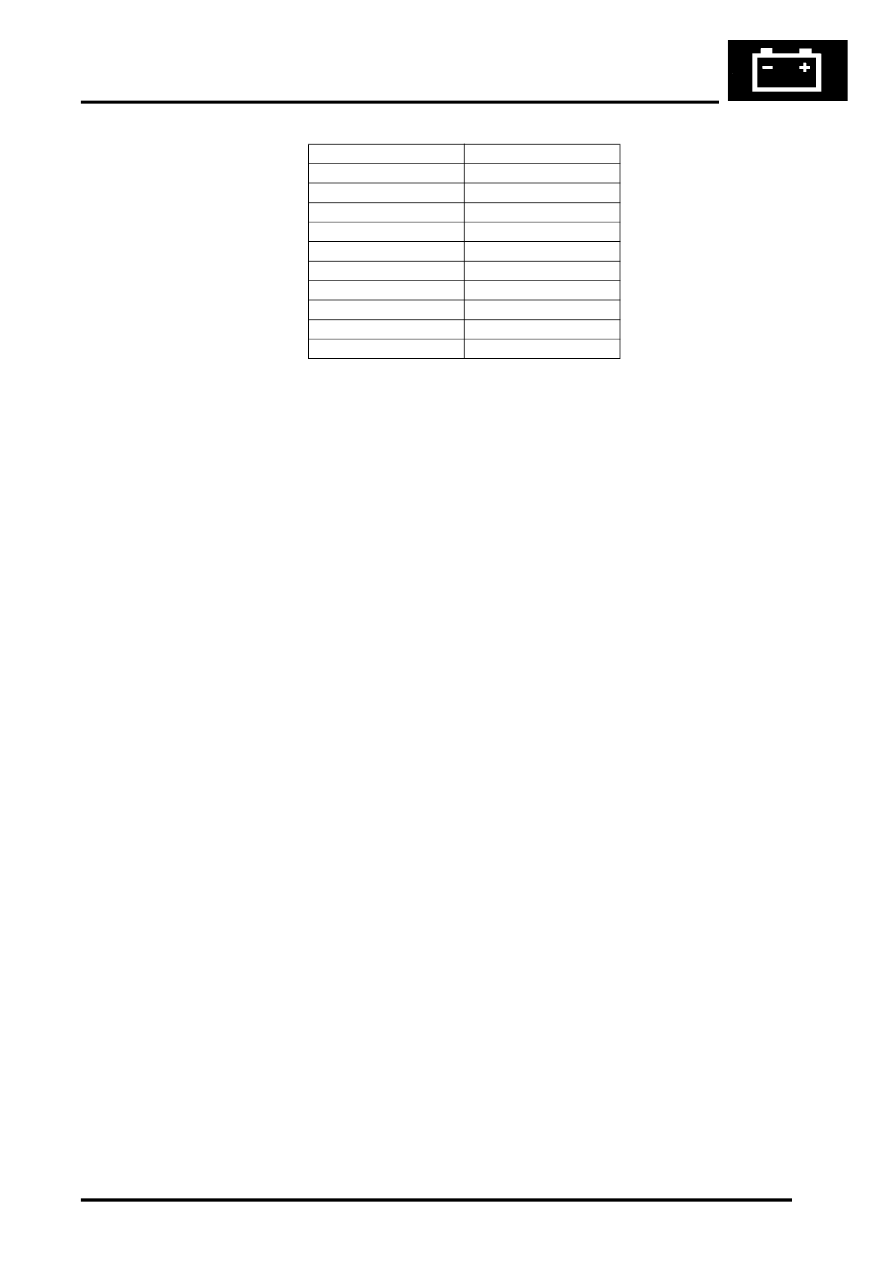L322 Range Rover System Description and Operation

INSTRUMENTS
DESCRIPTION AND OPERATION
88-11
Ambient Temperature Sensor Resistance/Temperature Values
Message Centre
The message centre is located at the bottom of the instrument pack. The message centre comprises an LCD, which
has a 20 character text display. The majority of messages are generated by the LCM which monitors system status
via the bus systems and displays system information messages as appropriate. Other system ECU's are also capable
of generating messages to display system status. Most messages are accompanied by a chime, which is requested
by the ECU generating the message and generated by the instrument pack via the sounder.
A check control button is located between the tachometer and the engine coolant temperature gauge. This button
allows the driver to view system status messages which are current in the instrument pack RAM. Pressing and
releasing the check control button, displays current messages in priority order or, if no messages are present, the
message centre displays 'CHECK CONTROL OK'.
The messages are assigned priorities, depending on the effect on driving safety and driving ability of the vehicle. New
messages are displayed and accompanied by a chime from the sounder. Messages are divided into priority groups
P1, P2 and P3. The priority groups are as follows:
l
Priority Group P1
This group includes messages which have a direct affect on the driving ability and safety of the vehicle, “ENGINE
OIL PRESSURE” for example. This message requires an urgent and immediate reaction from the driver in
response to the message. P1 messages are also accompanied by appropriate flashing warning lamp symbols
adjacent to the message centre. If more than one P1 message is present, each message is displayed in turn at
3 second intervals. P1 messages are displayed between the symbols “> <” which are flashing.
l
Priority Group P2
This group includes messages which do not directly affect driving ability or safety of the vehicle, “CHECK
NUMPLATE LIGHT” for example. This message must be noted by the driver and the cause rectified as soon as
possible. Each message is indicated once for a maximum of 23 seconds. They can be recalled by pressing the
check control, RH, button on the instrument pack. P2 messages are displayed between the symbols “> <”, which
are permanently illuminated with the message.
l
Priority Group P3
This group displays messages which relate to fluid levels, “LOW SCREEN WASH” for example. Depending on
the message, some messages are only displayed at the end of a journey, to avoid irritation to the driver. P3
messages are displayed between the symbols “> <”, which are permanently illuminated with the message.
Two other groups are defined as 'End of Journey Messages' and 'Special Messages S and S1', as follows:
l
End of Journey Messages
Messages categorised as 'P1' and 'P2' error messages, are displayed again at the end of the journey. Error
messages do not include messages such as “DOOR OPEN”. Messages in the 'P3' group are displayed after the
'P1' and 'P2' messages. New messages, which only occur at the end of a journey, “LIGHTS ON” for example,
are displayed according to their priority.
l
Special Messages S and S1
These messages have the highest priority and cannot be overridden by messages in groups 'P1', 'P2' and 'P3'.
They immediately overwrite any currently displayed messages. If more than one special message is present, the
message with the highest priority has priority, after the current displayed message has been shown for at least
1 second. S and S1 messages are not displayed between any symbols.
Temperature
Resistance k
Ω
-40
°
C (-40
°
F)
168.250
-30
°
C (-22
°
F)
88.500
-20
°
C (-4
°
F)
48.535
-10
°
C (+14
°
F)
27.665
0
°
C (+32
°
F)
16.325
+10
°
C (+50
°
F)
9.9500
+20
°
C (+68
°
F)
6.2450
+30
°
C (+86
°
F)
4.0285
+40
°
C (+104
°
F)
2.6633
+50
°
C (+122
°
F)
1.8015
